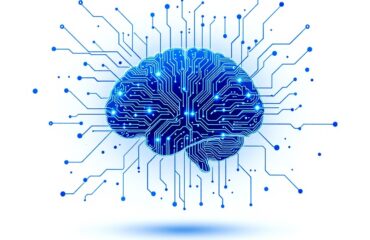The Future of Work: Understanding AI Automation for Business Success
AI Automation for Business is revolutionizing how people operate, combining intelligent decision-making with automated processes to create more efficient and productive workplaces. Let’s explore how this technology is reshaping business operations and how organizations can leverage it effectively.
What is AI Automation?
AI automation represents the next evolution in business process optimization, merging artificial intelligence’s cognitive capabilities with automated workflows. This powerful combination enables systems to not just follow predetermined rules, but to learn, adapt, and make intelligent decisions based on data and context.
- Process and understand unstructured data
- Learn from experience and improve over time
- Make context-aware decisions
- Handle complex, variable tasks
Key Components of AI Automation
The foundation of AI automation rests on two primary pillars: artificial intelligence capabilities and process automation tools. When combined, these elements create powerful systems that can transform business operations.
1. Artificial Intelligence
- Machine learning algorithms
- Natural language processing
- Computer vision
- Predictive analytics
2. Process Automation
- Workflow automation
- Task scheduling
- Data processing
- System integration
AI Automation for Business Benefits
Organizations implementing AI automation often see dramatic improvements across multiple areas of their operations. The technology delivers both immediate operational benefits and long-term strategic advantages.
Enhanced Productivity
- Reduces manual workload
- Accelerates task completion
- Minimizes human error
- Enables 24/7 operations
Improved Decision Making
- Data-driven insights
- Real-time analytics
- Pattern recognition
- Risk assessment
Cost Efficiency
- Reduced operational costs
- Optimized resource allocation
- Decreased error-related expenses
- Scalable solutions
AI Automation for Business | Practical Applications
AI automation can be applied across various business functions, transforming how organizations handle day-to-day operations and strategic initiatives. Here are key areas where AI automation makes a significant impact.
Customer Service
- AI-powered chatbots
- Automated response systems
- Sentiment analysis
- Customer behavior prediction
Administrative Tasks
- Document processing
- Data entry and validation
- Calendar management
- Email sorting and prioritization
Marketing and Sales
- Campaign optimization
- Lead scoring
- Content generation
- Market trend analysis
AI Automation for Business | Implementation Strategy
A successful AI automation implementation requires careful planning and execution. This three-phase approach helps organizations maximize their chances of success while minimizing disruption.
1. Assessment
- Identify automation opportunities
- Evaluate current processes
- Define success metrics
- Assess technical requirements
2. Planning
- Select appropriate AI tools
- Design implementation roadmap
- Establish governance framework
- Create training programs
3. Deployment
- Staged implementation
- Testing and validation
- Performance monitoring
- Continuous improvement
Best Practices for Success
Successfully implementing AI automation requires following established best practices that have proven effective across various industries and organization sizes. These guidelines help ensure smooth adoption and maximum benefit.
- Start with clear objectives
- Focus on high-impact processes
- Ensure data quality and security
- Maintain human oversight
- Invest in employee training
- Monitor and measure results
Future Trends
The AI automation landscape continues to evolve rapidly, with new capabilities and applications emerging regularly. Understanding these trends helps organizations prepare for future opportunities and challenges.
- Integration of generative AI
- Enhanced natural language processing
- Advanced predictive capabilities
- Increased automation complexity
- Greater accessibility for small businesses
Getting Started
Beginning your AI automation journey doesn’t have to be overwhelming. Start with a structured approach that allows for gradual implementation and learning.
- Conducting an AI readiness assessment
- Identifying priority areas for automation
- Selecting appropriate AI tools and solutions
- Developing an implementation timeline
- Measuring and optimizing results
Conclusion
AI automation represents a transformative opportunity for businesses of all sizes to enhance their operations and competitive position. By taking a strategic approach to implementation and focusing on continuous improvement, organizations can realize significant benefits while positioning themselves for future success.
Recommended Reads
Enhance Your AI Knowledge:
- AI Readiness Survey Take our 2-minute assessment to discover your business’s automation potential and get a personalized AI implementation plan.
- What are AI Agents? A Comprehensive Guide Understand how AI agents can transform your business operations and automate repetitive tasks.
- Getting Started with AI: A Beginner’s Guide Learn the fundamentals of AI implementation and how to choose the right tools for your business needs.









